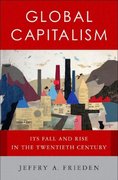Question
Consider a hypothetical economy in which each worker has to decide whether to acquire education and become a high-skilled worker or remain low-skilled. Let ??
Consider a hypothetical economy in which each worker has to decide whether to acquire education and become a high-skilled worker or remain low-skilled. Let ?? and ?? denote the incomes earned by a high- and low-skilled worker respectively. These incomes are defined as ?? = (1 + ?)? and as ?? = (1 + ?)? , where H and L are constants (H > L) and 0 ? ? ? 1 is the fraction of the population that decides to become high skilled. The gain from education and acquiring skill is thus (?? ? ??). However, education and acquiring skill carries a positive cost of C (a constant). Assume that all individuals simultaneously choose whether to become skilled or not.
a) Does there exist any complementarity in acquiring skill? Describe it.
b) Suppose that H ? L f and cost of acquiring skill versus f. Is the situation in which only a fraction of the population becomes high-skilled equilibrium? Give an algebraic expression for this fraction. In case it is an equilibrium, is it stable or unstable? Find the other equilibrium values of f and determine which one is stable.
if it's not clear, here is the screenshot.


Step by Step Solution
There are 3 Steps involved in it
Step: 1

Get Instant Access to Expert-Tailored Solutions
See step-by-step solutions with expert insights and AI powered tools for academic success
Step: 2

Step: 3

Ace Your Homework with AI
Get the answers you need in no time with our AI-driven, step-by-step assistance
Get Started


